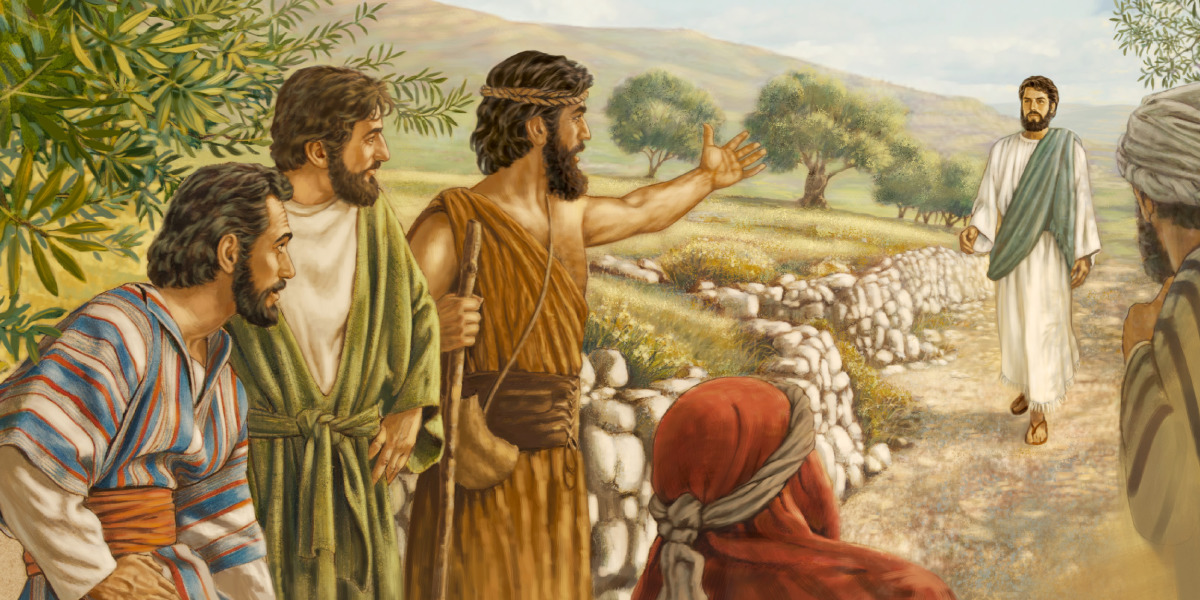First Reading: Is 49:3.5-6; Psalm: 40. R. v. 8a. 9a; Second Reading: 1Cor 1:1-3; Gospel: Jn 1:29-34
FROM FAITH TO WITNESSING
BY FR VALENTINE NNAMDI EGBUONU, MSP

As at the time Jesus came walking towards John in the gospel of today, he had already received his baptism by the hands of John. So Jesus was not coming towards John for another baptism this time around but for John to complete his course. John had two primary assignments as Jesus’ precursor. The first was to prepare the way for the Lord through his preaching and baptism. And the second was to publicly reveal or announce Jesus as the Messiah to the people of Israel. “I myself did not know him; but for this I came baptising with water, that he might be revealed to Israel.” (Jn 1:31).
John’s second and last assignment was completed when he announced Jesus as the “Lamb of God.” But the statement of John that he does not know Jesus prior to this disclosure sounds a bit strange. Mary, the mother of Jesus was a cousin to Elizabeth the mother of John. So John was the kinsman of Jesus. Although they grew up apart, Jesus in the little town of Nazareth and John in the wilderness; this however does not mean they were ignorant of one another.
So, it does not seem that John knew Jesus not. John actually knew Jesus either facially or by information. But what John did not know about Jesus was that Jesus was the Messiah. So when John said that he does not know who Jesus was, he was referring to the divinity of Jesus Christ which he knew of at Jesus’ baptism. “I myself did not know him; but he who sent me to baptize with water said to me, ‘He on whom you see the Spirit descend and remain, this is he who baptizes with the Holy Spirit. And I have seen and have borne witness that this is the Son of God.’” (Jn 1:33-34).
The final assignment of John which was the culmination of his entire mission was to make Jesus know to the world. John testified that this was the very reason he came baptising in the first place. This meant that Jesus was at the very centre of John’s mission. John’s work was a journey towards discovering and revealing Jesus to the world. Just like John, the rest of the people of Israel probably knew Jesus as the son of Joseph who grew up in the small town of Nazareth. But Jesus’ life as the Son of God which apparently was unknown by everyone as he grew up silently in Nazareth was made public once more, this time around by John as Jesus kicks off his public ministry. This announcement of John turned every focus on Jesus.
John’s belief on Jesus as the Son of God was not reached by any human intuition or power but by divine enlightenment. An encounter that dissipated every doubt and obliged John to make a public confession. It is supposed that our faith as Christians is deeper than a mere knowledge of God. Because who Jesus truly is to us is deeper than the knowledge of him. A lot of people in our world today only know Jesus at the level of knowledge. The world knows that Christians profess Jesus as the Son of God, the second person of the Blessed Trinity, and a saviour who died on the cross. This is a generally knowledge. But who Jesus really is to us and to the world is deeper than this mental acknowledgement.
When we call Jesus the Messiah or the Lamb of God; it is not just a mere title. That name encapsulates not just a historical event but the life that changed and continuously changes the world through witnessing. This witnessing is what Jesus needs from us to change the world’s mere knowledge of him to a life lived for him. As disciples of Christ, our witnessing to the life of Jesus should be transformative in the little things we do. Every action we take should be inspired by the desire to announce Jesus to the world. Our world has heard enough of Jesus. What it desires now is to see Jesus.
When we choose to serve to alleviate the sufferings and pains of others through generosity and love; there goes Jesus the Lamb of God. When we promote equality of rights and do not discriminate between whites and blacks; we personify Jesus the Lamb of God. When we do not judge or condemn others based on hatred, prejudice, and racial sentiments; we announce Jesus the Lamb of God. When we forgive unconditionally and promote peace and reconciliation; we witness to Jesus the Lamb of God.
Our belief and the faith we profess has to shine out from the conviction that stems from our deep spiritual encounter with God. Every day at Mass we encounter Jesus in the Word and Sacrament. If these encounters do not lead to a life of witnessing, then we only know Jesus at the level of knowledge. And we are not better off than the non believers out there who may not read about Jesus but live a just and honest life.
PRAYER FOR THE DAY
Lord Jesus, may our encounter of you in the Word and Sacrament be reflective in our daily lives. Amen.


